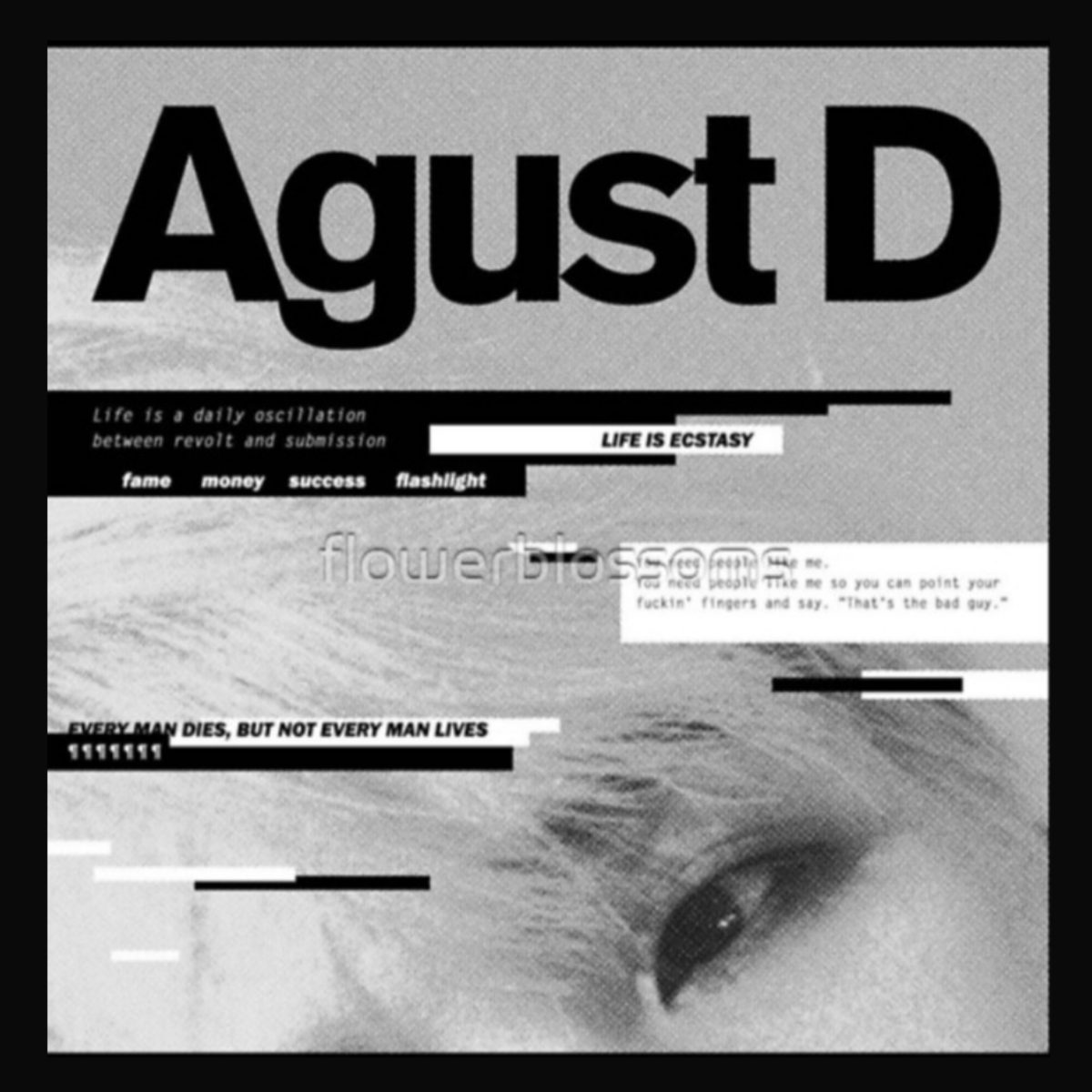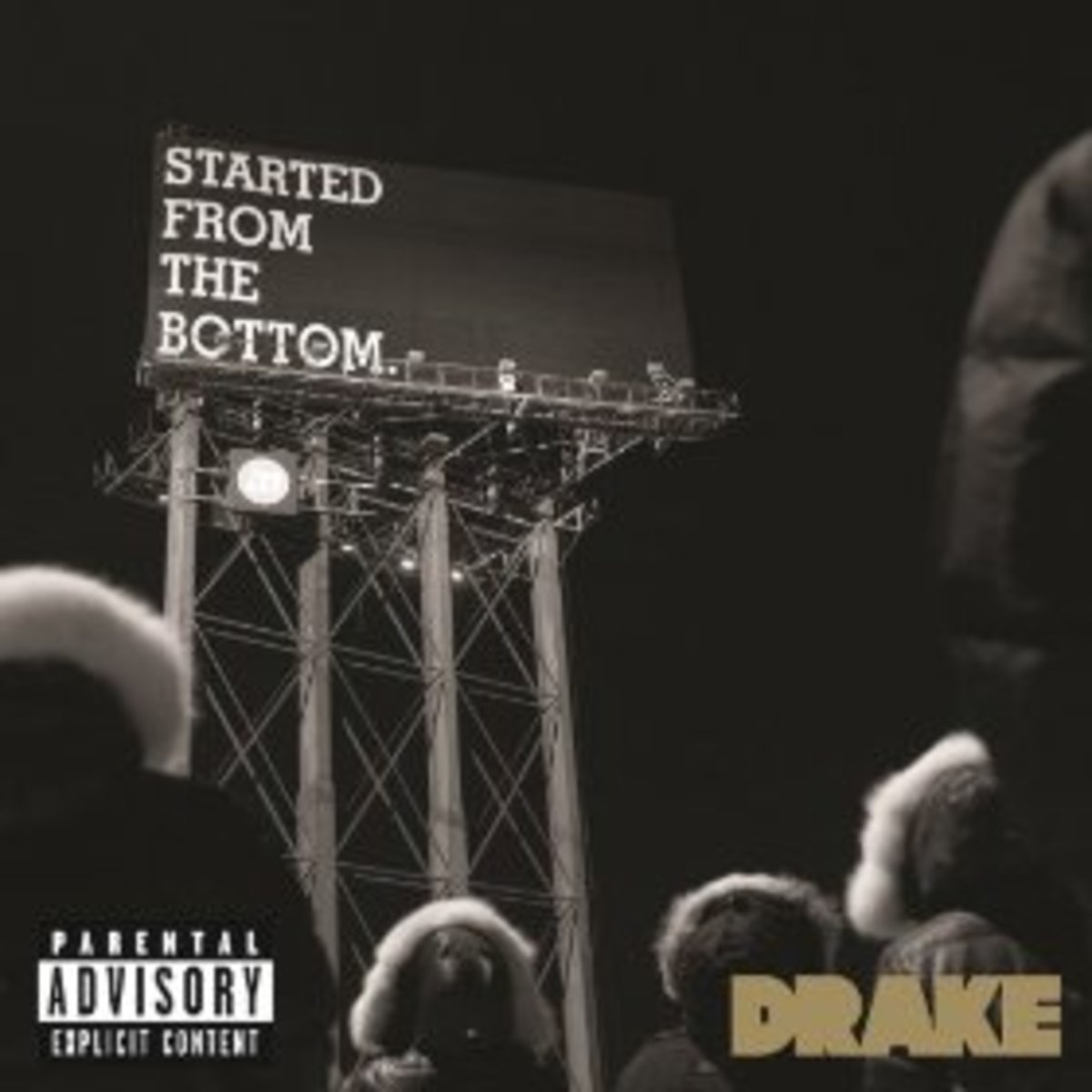The Weakest 3 Tracks on Kendrick Lamar's To Pimp A Butterfly
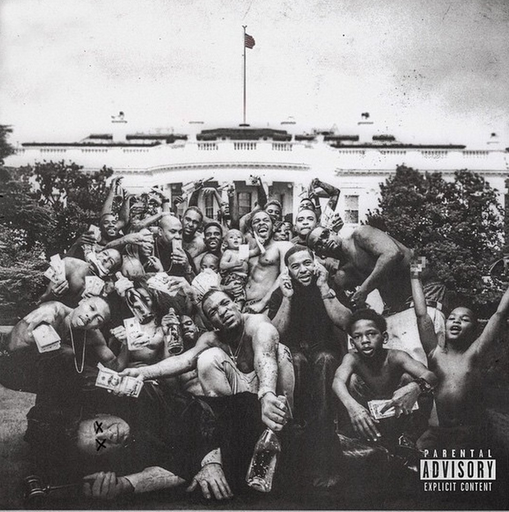
Introduction
To Pimp A Butterfly was released in 2015 to much anticipation. It won Best Rap Album at the 58th Grammy Awards, with its singles i and Alright winning the Best Rap Song and Best Rap Performance respectively. You may have heard of it, or come across its buzz; if you're curious as to why, here's a brief introduction to get you acquainted.
Kendrick's Section.80 saw him collaborate with huge names such as Lil Wayne and Snoop Dog. His major label debut, good kid, m.A.A.d city won Album of the Year in at the 56th Grammys. A guest verse on Big Sean's Control sent waves through the hip-hop scene as he swore to "murder" a host of up and coming rappers, further propelling his popularity.
He is certainly different, the herald of a new direction for gangsta rap. His critical outlook on life in the hood, rather than glorifying it, is a welcome breath of fresh air to many, and flat out inspiring to others. good kid, m.A.A.d city, in particular is an album dedicated to this, looking at the transience of money and power, the power of peer pressure, and an honest insight into what life is as an oppressed person that translated well to other audiences.
To Pimp A Butterfly was long awaited as the sequel to good kid, m.A.A.d city. It by and large delivered, though it is not so much a sequel as it is a continuation, this time examining more closely Kendrick and his new struggles after his success.
It is a daring album in a lot of ways. Musically, it chooses to dance with jazz rather than standard hip-hop beats, and it is a move that really gives body to the soul of the album. Free-flowing, cheeky, to dark and ominous, wistful to determined: I feel that the band is just as much a part of its success as Kendrick's writing, for they brought to the story line sound that consistently reflects its mood and message.
Yet the album is, great as it may be, not perfect, and there are tracks that I tend to skip. Below are my picks for the three weakest tracks on the album. Every entry comes complete with links to Youtube and their lyrics, so you can check them out and compare notes. The criteria is simple—I sort them by which ones I liked most and least, based on my two straight playthroughs of the album and the months that have passed since, with every track shuffled into a regularly visited playlist. I look for music, aesthetics and intention, and I'll explain these as we go along.
If you've listened to the album already, great—let me know what you thought of my choices. If you haven't, however, this is a good opportunity to see if the lows are something that you'd rather pass up on.
#1: These Walls
Listed as one of Kendrick's own favourites on the album, and winner of the Best Rap/Sung Collaboration Grammy, this track just rubbed me the wrong way. Staggered phrasing, the stuffing of the refrain—"If these walls can talk"—on to the beat that comes off awkward, and the (deliberately) lazy drawl in duet make for a chorus as enjoyable as barely expired milk. All the while, the layers of music don't mesh as smooth as they should, with the electric guitar's rhythm in particular sticking out akin a man in a hotdog suit amongst a business convention. Outside of this, though, the music serves its purpose just fine, well-picked synth and sound that suggests scenes of a hallucinatory nature.
As for the meaning of the song, it flew by me completely. The sleazy direction in every element made it obvious that this was about intercourse, and this much is to its credit at least, but what else? The first and second verses make a moderate effort to drive in depth, and the third verse that is supposed to clinch it all together is a blur of words that read fantastically on paper, but not so much on audio. I can't spoil it, so check out the lyrics in the link.
It should have been the turning point, a "Wow" moment, but it didn't work out for me because I just couldn't parse it.
Now, Kendrick asking his listeners to perk up at a particular moment is not new. He uses it to much better effect in other tracks. But when the line right after
That sentence so important
is a reference to "Sing About Me"—one of his best songs, by the way—it threw me off.
The reference itself is not the issue: it's apt and adds a lot of depth, tightening the connection between the two albums. It provides a continuation of Sing About Me, where Kendrick grieves the loss of his friend, with the result—revenge—being the ugly thing it is in These Walls. But Kendrick does not pronounce the title in quotes, and so it flies by, ineffectual and somewhat confusing, because "sing about me" as words themselves blend in as regular lyrics too easily.
Its role in the album as a turning point is vital. The lengthening of the "poem", if you compare it at the beginning and the end, is a clever way of showing what this track is all about:
Abusing my power, full of resentment
Resentment that turned into a deep depression
and these cerebral biscuits are always welcome. But an unpalatable chorus and execution that needed a bit more space result in These Walls being my pick for the weakest track on the album.
#2: King Kunta
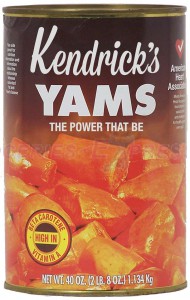
I am much more reluctant to put this on list. So reluctant I was, in fact, that this spot had previously been given to another track entirely: Complexion (A Zulu Love), but after days of deliberation I realized that both of these tracks suffer from the main issue, and that is that in an album full of gems, they don't do very much. Put another way, King Kunta's real sin is being less impressive than Complexion, and Complexion's real sin is being merely alright (as of compared to Alright, which was excellent).
Similar to Complexion, King Kunta sports a a great groove that supports its intended mood: in the former, it's a relaxed, chilled love song, and in the latter, it's a song about success and empowerment. Both have clever little bits scattered across the writing, yet Complexion has it between verses as well.
But where Complexion's attempt to compare colourism (light-skinned versus dark-skinned African Americans, specifically) to hood politics (gang colours) came off as half-hearted and compensatory, King Kunta is a full drive into success story land. And unfortunately, a half-hearted attempt at doing something new trumps a concentrated attempt at retreading old ground.
This is not to say that it's bad, by any means. It's just by the book, and even the musical progression, which features doinky cheeky sounds that convey the flippant tone nicely, is a bit too obvious—with every chorus repeat, an extra layer is added, and so at the end of the song you have the full landscape. It's the most direct way to add the feeling of progression, and it's fine, but that takes away the magic of "I don't know why this is so good!" and replaces it with a understanding of "Right, that's why that is good". In a showdown between two puppeteers of equal skill, the one that doesn't show their strings is more convincing. And such is how it is with King Kunta.
Perhaps this is a necessary evil of being track #3, right after the explosive Wesley's Theory and the hotplate-dancing For Free?, that it must be straightforward and easy enough to keep listeners on board. "Kendrick has won" is a simple summary of the track as a standalone. Perhaps this is a necessary stage to cover in context of the story—to explore the struggles of success, he would first have to establish himself as having succeeded. Again, I am reluctant, and this might as well be the time to reiterate that this is a list of my picks for the strongest/weakest tracks. It's a reasoned but ultimately subjective piece.
Yet, by virtue of necessity, because King Kunta trades the glimmer of something special for a blast of hot air, and so it is one of the weakest tracks on the album.
#3: Mortal Man
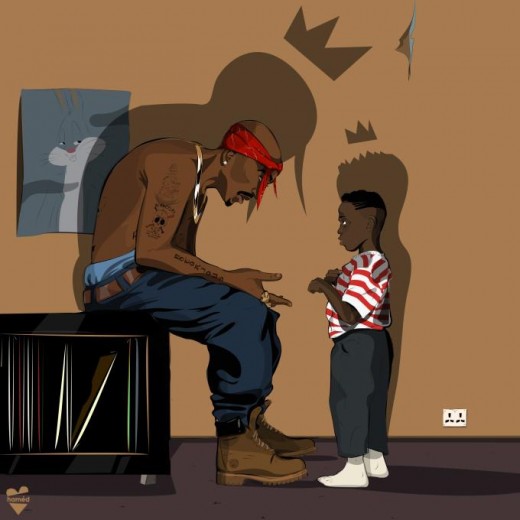
The final track of To Pimp A Butterfly is deeply satisfying, by nearly every account a great ending. The full poem that underlies the album is revealed and explained, and there's a post-mortem interview with a deceased legend using rare footage of another interview which I found to be unique, very artsy in a sense.
I have an inordinate love of piano keys in hip-hop, and thus the backing music here is probably my favourite out of the whole album. The repetition here actually works to the track's benefit, emphasizing the message in the empassioned, almost heartbroken way it was meant to be. The words are suitably spiritual, mystic, driven, charged with feeling, for such a personal journey of rediscovering roots, perspective and self. Kendrick really stakes his claim on his fans by boldly reaching into their comfort zone and challenging what does it mean to call yourself a fan, a follower... and while it does all that well, it's because it does this that stops it from being more.
Raising Michael Jackson as a prime example of the message, the song climaxes, lifting from heavy concern to full righteous fury:
How many leaders you said you needed then left ‘em for dead?
Is it Moses, is it Huey Newton or Detroit Red?
Is it Martin Luther, JFK, shoot or you assassin
Is it Jackie, is it Jesse, oh I know, it’s Michael Jackson, oh
When shit hit the fan, is you still a fan?
When shit hit the fan, is you still a fan?
That nigga gave us Billie Jean, you say he touched those kids?
When shit hit the fan, is you still a fan?
And this shows exactly what's wrong with the song.
Back when this was written, the consensus was that MJ was innocent, and his accusers were just out seeking fame. He was a perfectionist, he was troubled over how to give his fans the best return he could, he was loving and kind and a beautiful human being. Nobody could have known that the police, when clearing out his estate, would find, well, quite the contrary. This link (trigger warning) will take you directly to the police report PDF so that you can assess for yourself the situation, free of tabloid influence. Herein, in the most striking, most relevant example, lies the biggest counter to the message of Mortal Man—unrestrained ideological devotion is rarely right.
Now he's not demanding prophet-like status (at least, not literally), nor is this an attempt to brainwash listeners. But one could be forgiven for thinking so, considering the emotional intensity of the song, both by itself and as the conclusion to the album. Again, I want to reiterate that the music is great, and as an ending to the album it's fantastically done. The experience is solid, and this includes the topic. It's in the post-daze moments of reflection that this song weakens.
I will add that I am a bit disappointed at the direction the interview went. It's ballsy for Kendrick to make a definite, even militant stand on the matter of institutionalized racism and inequality; doing so meant that it means much more for a smaller demographic, of which I am not. As I mentioned, though I am from a minority background, we're not particularly oppressed, so while I can sympathize, I can't truly understand how it must be. I feel that with another direction, Kendrick could have made an album with a message that speaks to nearly everyone, because damn if the other tracks aren't stellar in conveying universal themes such as exaggerating to fit in, depression, resentment, feelings of anger, being exploited... but he chose to double down on his demographic.
This is not a bad thing. We all know what happens when you try to please everyone. But man, if there were ever an album that came close to doing so, just maybe, To Pimp A Butterfly might have been it.
I didn't put Mortal Man as a weak moment because I resent it for something it wasn't. That's for the unfortunate example (and really there is no better word for it), and how that ends up making the listener reflect and think on poking holes through the rest of it instead of its message.
Which was your least favourite track on the album?
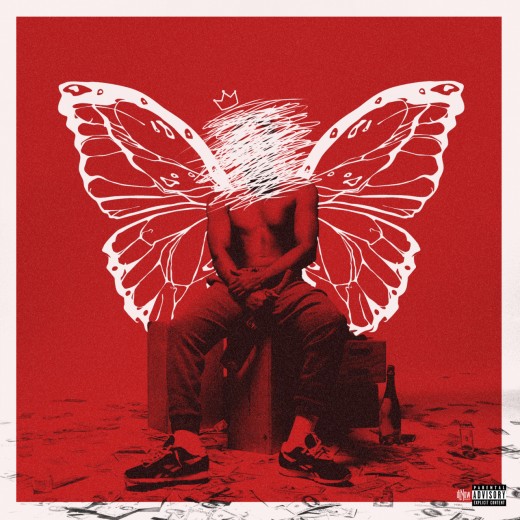
Conclusion
To Pimp A Butterfly is not so much defined by its highs and lows as its consistency of talent-charged jazz that sways with the mood, lyrics and subjects that provide much room for reflection, and a very honest, personal look at Kendrick's struggle with identity and status. Fans of his previous works will find much to love in his more mature, seasoned approach; newcomers will be surprised at the depth of criticism Kendrick brings against assumed hip-hop culture traits, as well as the brilliant marriage of musical styles on display. Again, I must note that this is overall a great album, with more winners than losers.
Yet for all its groundbreaking work, complete fullness of this album is reserved for those to whom it is speaking to. It does speak to many people at many times, but when it passes by you, it creates small pockets of distance that you become aware of. And disappointment is always stronger when you realize what it is you're missing out on.
If you enjoyed this—or not—let me know in the comments! And, of course, if you wanted to read more of my thoughts on the album, check out this link to my picks for the three strongst tracks on To Pimp A Butterfly.




